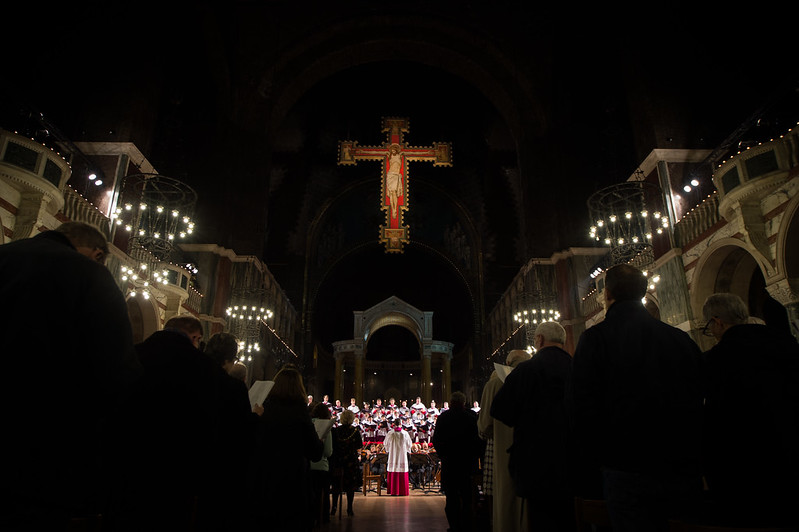England has more than 20,000 schools. All are regularly inspected for educational standards and safeguarding by Ofsted or by the Independent Schools Inspectorate (ISI) which is supervised by Ofsted. Most schools routinely meet these requirements, but Ampleforth College, sadly, is an exception.
The Independent Inquiry into Child Sexual Abuse (IICSA) found that standards of safeguarding had been inadequate for decades and that this had enabled appalling abuses of pupils. The most recent case involved music teacher Dara de Cogan who taught there until 2016. He wasn’t detected by the school. He was arrested when his victim “A30” contacted the police some years after she left.
A30 testified to IICSA describing how easily de Cogan got around Ampleforth’s safeguarding arrangements. These have since come under considerable external scrutiny. The school failed three ISI inspections in 2018 and 2019. DfE rejected an action plan in response to these failures and it had to be revised. They passed two limited ISI inspections in 2020 but failed an Ofsted inspection in September. This history prompted DfE to issue an Enforcement Notice banning Ampleforth from admitting any new pupils after 29th December 2020.
The school sounded quite indignant about the Ofsted visit. Management lodged a complaint against the report and told parents: “We don’t know why Ofsted came, 16 teaching days after the second successful ISI inspection in August 2020.”
The DfE notice described it as an “emergency inspection”. According to the gov.uk website, these are normally undertaken “as a result of a complaint or other intelligence received by DfE that appears to raise a concern about safeguarding pupils or putting their safety at risk”. It appears DfE was tipped off about a problem that ISI hadn’t noticed and sent Ofsted in to investigate.
Even after the school’s complaint was resolved, Ofsted’s report was damning. It suggested that the headteacher was not in control of his staff. “The headteacher since his appointment has brought improvements to the school’s internal safeguarding arrangements. However, other leaders do not always share essential information so that he has full strategic oversight of potential risks at the school and how those risks are being mitigated.”
The report further suggested that the leadership was deluded about progress made since 2016. “Leaders and governors feel that they have established a robust governance mechanism that takes all appropriate and reasonable action to safeguard pupils. This is not borne out by inspection evidence.”
This leaves Ampleforth in a very precarious situation. Does the school appeal the enforcement notice or offer a new action plan? The management is dreadfully short of time – if the school is to remain financially viable the ban must be lifted in time for the September 2021 intake. There’s insufficient time to appeal and then react if the appeal fails. Given Ofsted’s conclusions, the chances of a successful appeal are slim to none. So, to save the school, a new and better action plan must be prepared immediately, approved by DfE and implemented in time for a new inspection sometime around Easter. That is a tight schedule but just about achievable. If DfE is convinced that real and lasting change has happened, then they will probably lift the ban in time for September.
There have been four comment pieces in the press supporting Ampleforth since the notice. Three of them (Telegraph, Spectator and Critic) accuse the government of anti-Catholic discrimination, seemingly suggesting that Henry VIII and Thomas Cromwell are motivating government action rather than the school’s safeguarding shortcomings. Given that the Cabinet includes prominent Catholics like Jacob Rees-Mogg, whose wedding was conducted by the Abbot of Downside, this is just silly. It might stir up the faithful but it will merely irritate the government.
The fourth piece, by Rose Craston here in The Tablet, praises the pastoral care of the school to which she has sent three children over the last 11 years. She describes it as a “happy community”. Pastoral care may well be excellent – except when it isn’t. For seven of those eleven years, de Cogan taught at the school, an abuser undetected in their midst.
The school has also encouraged parents to post positive stories about Ampleforth in social media. But this is a seriously bad time for a PR campaign. The DfE may interpret it as an assertion that the enforcement action is unjustified and that the school doesn’t really need to improve. Ampleforth’s new action plan will need to be very persuasive to gain DfE acceptance and these conflicting messages don’t help. They are likely to cause DfE to examine the plan more sceptically, encourage Ofsted to be even more careful during the next inspection and induce hesitation about lifting the ban even if the inspection is passed.
Ampleforth College must finally get serious about safeguarding or it will deservedly close. There is no third option.



 Loading ...
Loading ...
What do you think?
You can post as a subscriber user ...
User comments (0)